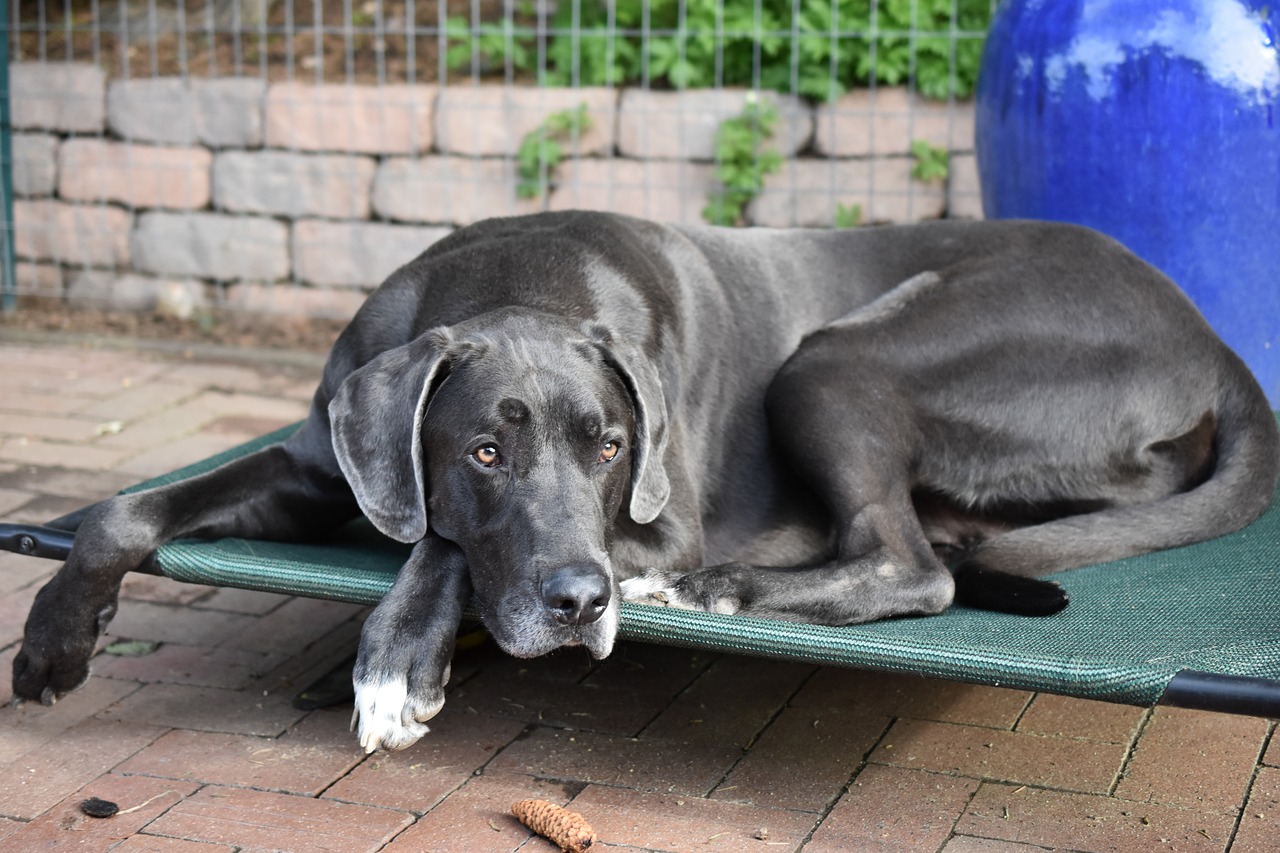With their gentle nature, charming personality, and impressive size, Great Danes certainly stand out in the dog world. They’re a breed that captivates hearts and draws admiration wherever they go. But is a Great Dane the right dog for you? Below, we’ll explore five critical aspects of Great Dane ownership to help you decide.
1. Size Considerations
Undoubtedly, the first thing that comes to mind when thinking about Great Danes is their imposing size. Standing up to 32 inches tall at the shoulder and weighing as much as 200 pounds, they’re one of the world’s largest dog breeds. The size brings about a few challenges: they need more space to move around, bigger beds, and larger quantities of food. Also, care should be taken around small children, as unintentional bumps can knock a toddler over. On the plus side, their size can make them an effective deterrent for unwanted visitors.
2. Exercise Requirements
Despite their size, Great Danes are not particularly high-energy dogs. They need regular, moderate exercise to keep them healthy and happy. Too much high-impact exercise, particularly for puppies, can harm their rapidly growing bones and joints. Great Danes are well-suited for owners who can commit to a few walks each day, with some playtime in between. If you’re an extreme sports enthusiast looking for a jogging partner, a Great Dane might not be the right choice for you.
3. Affectionate and Gentle
Known as “gentle giants,” Great Danes are exceptionally affectionate and love to be part of the family. They form deep bonds with their owners and can be great with children, exhibiting patience and gentleness. However, their deep attachment to their family means that they don’t like being left alone for extended periods. Separation anxiety can be a problem in this breed, so they’re best suited to families where someone is at home most of the day.
4. Health Concerns
Great Danes, like many large breeds, are prone to specific health issues. They have shorter lifespans, typically 8-10 years, and can develop conditions like hip dysplasia, heart disease, and certain types of cancer. They’re also prone to bloat, a potentially life-threatening condition. Potential owners should be aware of the potential for high veterinary costs and should ensure they purchase from reputable breeders who screen for these health issues.
5. Easy to Train but Need Early Socialization
Great Danes are eager to please and generally responsive to training, which can be a joy for first-time dog owners. However, like any breed, they need proper socialization from a young age to ensure they grow into well-rounded dogs. Given their size, an unsocialized or poorly behaved Great Dane can be difficult to manage.
In summary, Great Danes are affectionate, relatively low-energy dogs that make great family pets for those who can accommodate their size and are aware of their potential health issues. They are not suitable for people who are away from home for long periods or who prefer a small, lap-sized dog. Owning a Great Dane can be an incredibly rewarding experience, but it’s crucial to consider the breed’s specific needs and whether they align with your lifestyle before bringing one into your home.

 Toledo, United States.
Toledo, United States.